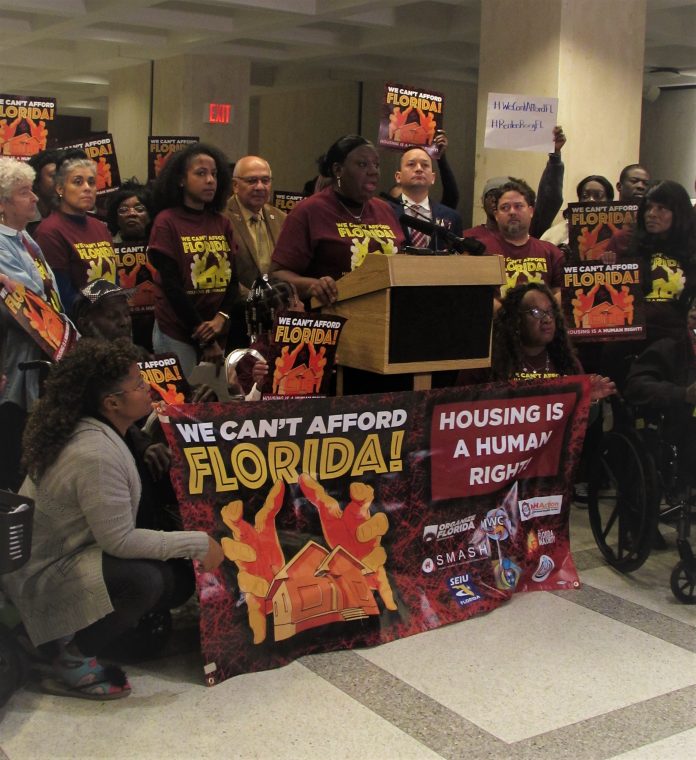By Issac Morgan April 9, 2021

Residents from Florida’s most vulnerable populations rely on affordable housing programs to buy a home, pay rent, and afford costly home repairs and construction.
But those programs are now threatened by state lawmakers who have pushed to permanently cut a significant chunk of money for the state’s affordable housing fund. Those dollars come from documentary stamp revenues.
The legislation titled SB 2512, which reduces the percentage for the pot of money that goes into affordable housing, is headed to Gov. Ron DeSantis’ desk for his consideration.
The governor in January had recommended $423.3 million for such housing programs. But the legislation approved Thursday would be far lower than DeSantis’ proposal.
According to the Florida Housing Coalition, lawmakers have been pulling money out for 18 years from what’s called the Sadowski Trust Funds, named after the late William Sadowski, a former agency secretary in Florida government.
The funds swept over years have resulted in “a shortage of more than 344,000 affordable homes for lower-income Floridians,” according to the housing coalition.
Affordable housing programs oftentimes are geared toward seniors, veterans, those with disabilities and low-income workers, according to the coalition. Housing trust funds are used for construction of new affordable apartments, repairing older homes and helping first-time home buyers purchase a house.
The Florida Senate agreed Wednesday to funnel $200 million to affordable housing – up from nearly $140 million in the original SB 2512 bill. The changes came from State Sen. Ben Albritton, a Republican member of the Committee on Appropriations. He represents DeSoto, Glades, Hardee, Highlands and Okeechobee counties, and parts of Charlotte, Lee and Polk counties.
Albritton increased the dollars by boosting the percentage of money that goes into the affordable housing fund.
